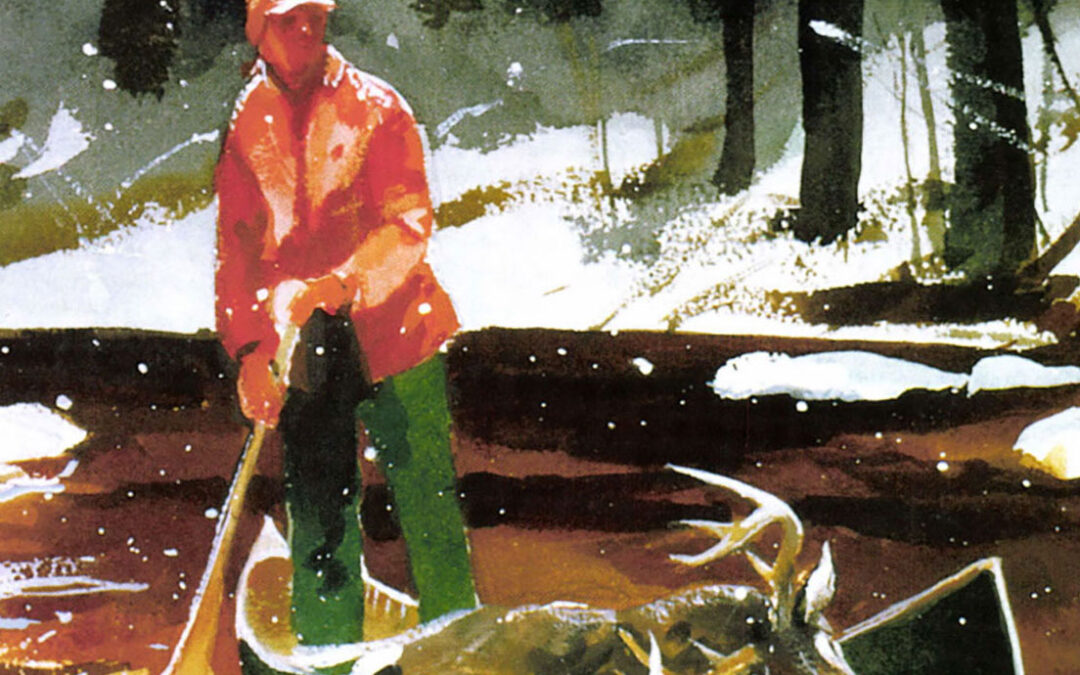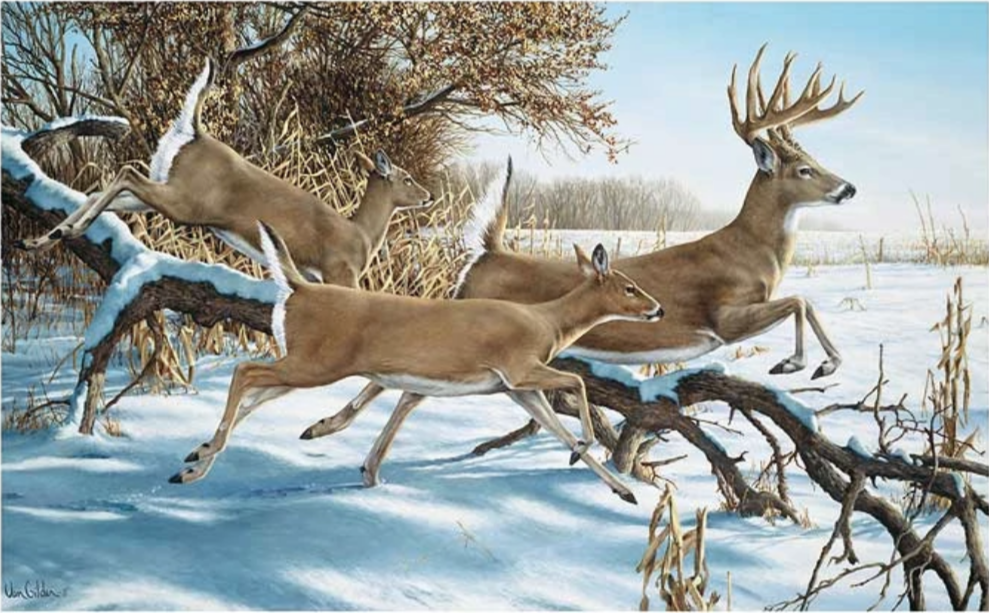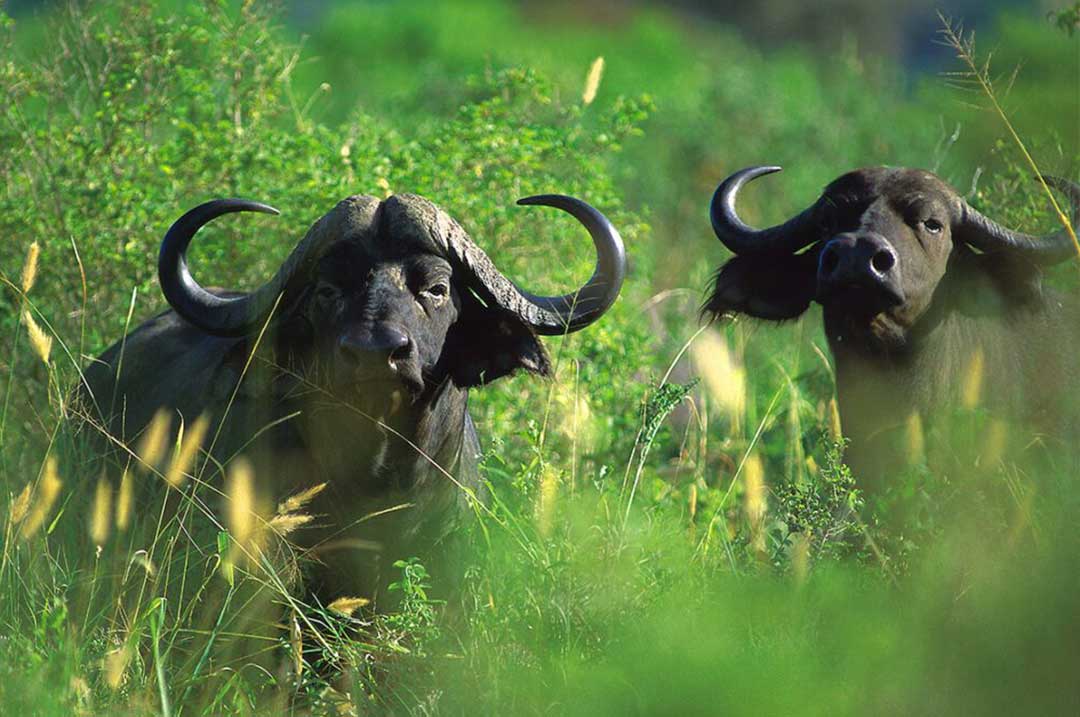The secluded river and soul-quieting snow…together they would cast just the right spell for losing himself while regaining a sense of belonging.
Day 1:
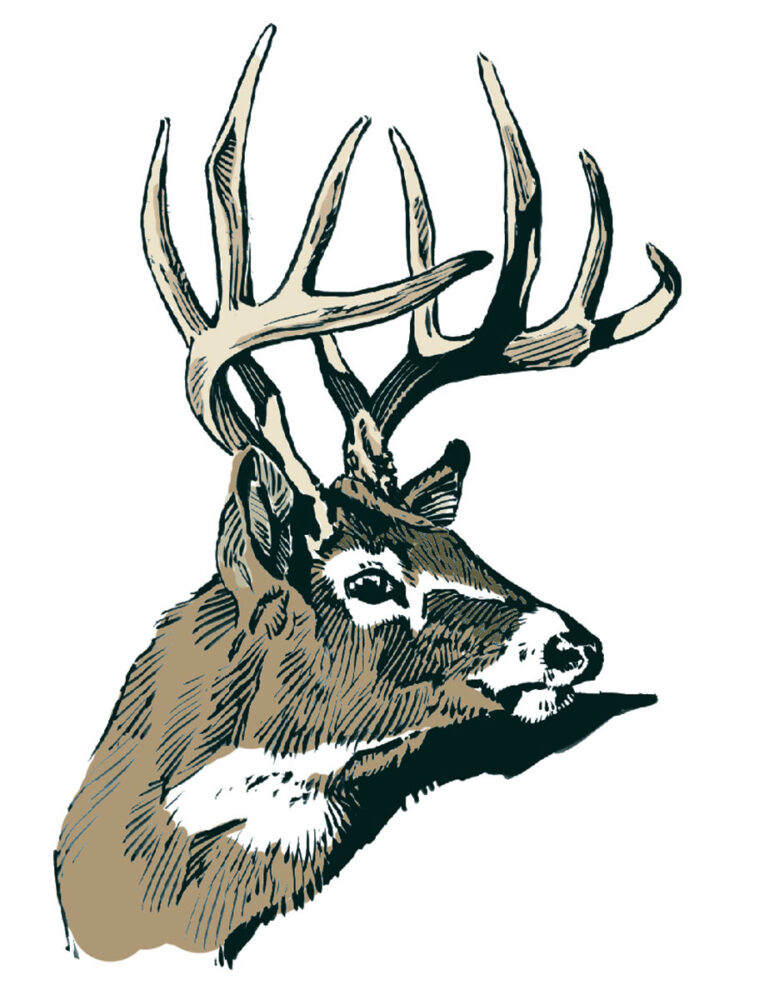 I am all by myself in the canoe, maybe on this whole river given the time of year and the fact that for days they’ve been calling for one hell of a storm.
I am all by myself in the canoe, maybe on this whole river given the time of year and the fact that for days they’ve been calling for one hell of a storm.
Snow. There’s nearly a foot on the ground already, which makes it great for spotting deer. Shortly after the put-in this morning, I drifted by two does bedded down under a cedar tree a stone’s throw from the water. For a moment, I considered my bow laying there unstrung in the bow. But then I thought better of it; the deer were too close, too soon. I paddled past without looking at them, without looking directly into their eyes, and they let me by without running, without so much as twitching an ear.
I’m remembering now the color of their hair — a soft color of gray, like soot, almost as gray as the sky that weighs down so heavy.
Anchored now in a quiet backwater slough where the Boardman River flows into Brown Bridge Pond. A moment ago, there were mallards here — five drakes and a hen that shot up over the trees and circled twice before flying out high over the lake.
Ducks are fair game on this float, and had they given me the opportunity, I would have tried to arrow one. The only food in my canoe is a three-pound bag of potatoes and three cans of tuna fish. A Spartan diet, which I hope to supplement with some freshly killed meat before long.
Trout fishing here earlier this summer, it seemed as if I was constantly walking up on deer bedded along the riverbank. Of course, this got me thinking about swapping my flyrod for a bow come autumn. But the plan got pushed back to what now feels like winter.
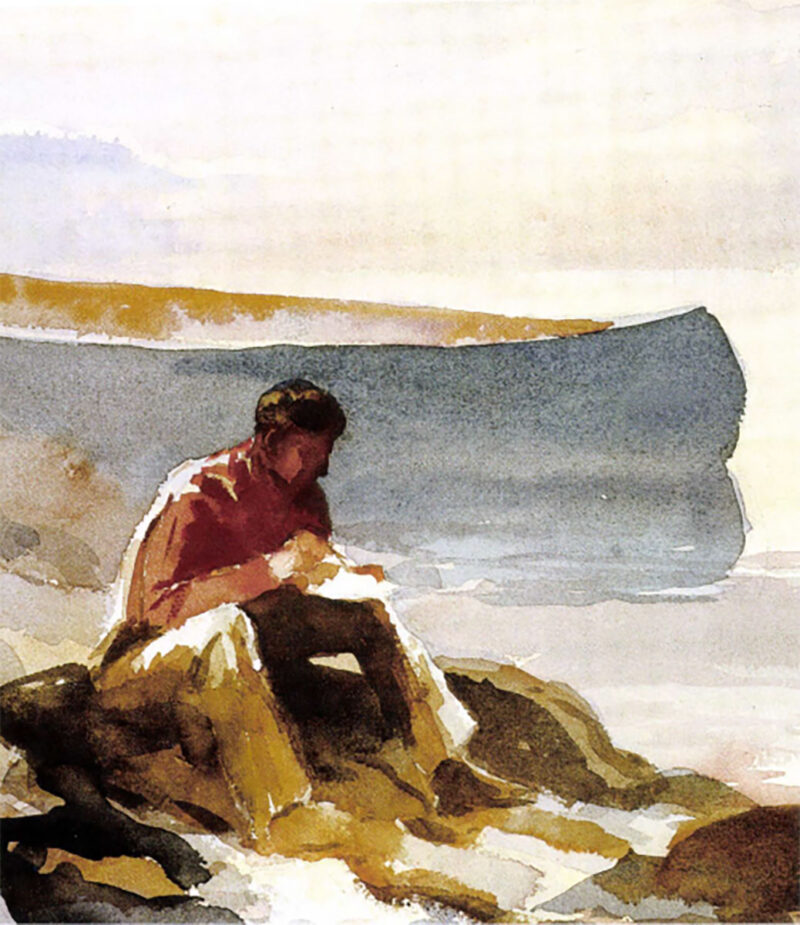 Certainly, there are wilder rivers in northern Michigan — more secluded waters to hunt and to lose one’s self for a while. I fished much of the Boardman this summer, so I know the meandering course the river makes. Scattered along the upper reaches are cottages and summer homes, while the lower part is usually choked with canoers and beer-swilling inner-tubers in summertime. But all of them are gone now thanks to the cold and promise of snow.
Certainly, there are wilder rivers in northern Michigan — more secluded waters to hunt and to lose one’s self for a while. I fished much of the Boardman this summer, so I know the meandering course the river makes. Scattered along the upper reaches are cottages and summer homes, while the lower part is usually choked with canoers and beer-swilling inner-tubers in summertime. But all of them are gone now thanks to the cold and promise of snow.
As for the river — truth is, even an inexperienced paddler could float the length of the Boardman in a day. But I’m hunting, so I plan on stretching that a little. In A Witchery of Archery, Maurice Thompson wrote of “Three Weeks of the Savage Life.” I have less than three days.
The Boardman is a river the young Ernest Hemingway fished on random sojourns from his parents’ home in northern Michigan. And what fly fisherman hasn’t heard the story of Leonard Halladay and the dry fly he invented for fishing these waters, named after his friend Judge Charlie Adams. The river will take me back to the city — Traverse City — the place I moved to for a job one year ago, almost to the day.
And as for my job, well, let’s just say I knew before I took it that I wasn’t cut out for the nine-to-five. But those paychecks that started coming in like clockwork sure beat the hell out of what I was making at the docks. They had a way of making me overlook the fact that my back was starting to hurt all the time and my legs were atrophying to such an appalling degree that I would be embarrassed to bear my spindly shanks come summertime. Unlike others who seem to bulk up with inactivity, I’ve always gone the other way.
In a moment, I’ll pull the anchor and ferry myself over to shore. My plan is to set up camp and spend what’s left of the afternoon hunting. Waiting for the storm.
After dragging the canoe ashore, I pulled it under the boughs of a cedar tree. There I cleared away a place to sleep — a shallow bed in the snow down into the leaves, down into the bare, black earth. I laid out a ground cover (a blue tarp folded in half), my sleeping pad, cold-weather bag and the rest of my gear. The canoe placed over the top formed a perfect makeshift bivouac.
I hunted the hill up behind camp for nearly two hours and then made my way back toward the river. My bow is a 64-inch hickory selfbow. It’s one of the first bows I ever made, so it’s kind of clumsy and heavy looking. Selfbows are said to be particular in inclement weather, especially in the rain, but this one has never given me a lick of trouble, I’ve killed with it before, and so I have that much-needed air of confidence.
The snow was soft and made for quiet walking. But instead of deer, all I crept up on were squirrels. Three grays and a black. I took a shot at the black squirrel where he sat on a fallen log. It was a hurried shot and I missed, then spent the better part of a half-hour digging for my arrow in the snow.
It started snowing soon after that; a fine, heavy snow. There was no wind or anything, just the snow so beautiful coming down that I decided to sit and watch it pile up for a while before heading back to camp.
I cut down the hill toward the sound of the river, peeling a little bark from every birch tree I passed. Bark from the white birch makes good fire-starter. It lights even when wet. It wasn’t long before my pockets were bulging with the stuff, and it pleased me beyond measure to be thinking of such necessary things.
From deer to rabbits, I found tracks of both down in the alders and Juneberry bushes along the river. Having already reserved myself to a dinner of tuna and boiled potatoes, I didn’t hold much hope of spotting either. And then I heard the ducks chattering out on the water, light back in the slough where I chased them from a couple hours before. The snow was still coming down, falling as fine as dust. Everything was so crisp, clear and cold. It sounded as if the ducks were right there, just around the next bend.
But creeping closer, I found them some distance away; surely the same ducks that had been here earlier in the afternoon. The drakes were tipping over one another to get their fill of whatever was beneath them. I sat hunkered down behind a snowdrift, watching until it was clear they didn’t have any intention of coming closer.
It was a long shot, but a makeable one. And in less time than it takes to write it, I picked out a drake in the middle of the paddling and let go a narrow. But by the time it got there another duck had climbed over the back of the one I wanted. At first it appeared as if I had missed all of them. Up and away I watched them, not quite believing that I’d missed. And as it turned out, I hadn’t.
One of them faltered and went limp and fell just before they cleared the trees. It splashed down on the edge of the slough and I set off running along the bank to intercept him. A drake. A beautiful greenhead. The killing shot, a small gash on his neck where the broadhead passed an inch or so under the bill.
After that, I felt damn near invincible walking back to camp. I tried to take in everything: the soul-quieting snow, the heft of the mallard in my hand, the rattle of my arrows in the quiver as I walked. Everything. All while knowing it might be quite some time until I felt this way again.
After plucking the duck clean (the breast skin the color of autumn corn), I found a little hide under the boughs of a cedar tree and there built a fire with the birch bark. The flames I fed with snow-covered limbs that hissed and popped. The duck cooked at a miserably slow pace, only to come out a little dry — and a little burnt, too —when it was done. But in spite of that it tasted as good as any duck I’ve ever eaten.
It’s dark outside as I remember all this to paper. I puta candle lantern up on the underside of the canoe seat, and I’m lying here now packed in my down sleeping bag, barely able to see the page under its dull glow. My quarters are tight, though wonderfully comfortable. For warmth, I took a stone from the fire ring, wrapped it in a towel and stuffed it into the foot of my bag. Before going to sleep I will take a look outside just to make sure it hasn’t stopped snowing.
I hope it snows all night. I hope to be covered over with the stuff by morning.
Day 2:
Cold this morning and awakened every couple of minutes or so because of it. But in spite of that, I felt strangely refreshed — alive —when I rose from my snow-covered tomb.
The sun was just coming over the trees, but it was intensely cold. A cup of coffee would have tasted fine, but I hadn’t had the foresight to bring any. So, I settled for a cup of river water, which was so chilly going down it made my throat ache.
The snow had stopped sometime during the night. But so much of it had fallen that a passerby would never have noticed my camp. Even the firepit was covered over, my tracks all but obliterated.
While getting my gear together, I ate a couple handfuls of granola from the bag I had ferreted away in my pack. Then I set across the slough to retrieve my arrow that had killed the duck for me last evening.
The sky this morning was powder blue and streaked with clouds the color of fire. All the trees along the banks were bent over, their branches drooping, laden with snow that everywhere glowed with a soft pink light. The arrow was stuck in the riverbank, only its fletching showing. I pulled it free and then worked in close to shore, paddling slowly, languidly, watching for deer, for squirrels anything that I might kill for lunch later that afternoon.
The river below the Brown Bridge impoundment runs faster than above. Almost too fast. Past the first bend, I surprised another flock of mallards — too many to even begin to count. They all lifted up from the water in a cloud and were gone so fast I didn’t even try to reach for my bow.
I drifted tight to the shoreline, veering away only when a log or fallen tree — a “sweeper” — got in the way, spooking tiny trout that darted under the boat and disappeared in the black water at midstream.
Not long after the ducks, I carne upon the mouth of Swainston Creek and what remains of the old bridge. “October 1907” is etched upon one of the crumbling cement trusses.
The bridge seemed a good place to stop and hunt for a while. I fished here this summer and had twice walked up on deer bedded down in the switch alders.
The wind this morning was perfect, blowing right out of the North. So after stringing my bow, I slipped on my waders and started still-hunting along the riverbank.
The gurgle of the river made for quiet walking, and the snow was piled so high on the banks it was like peering over a wall to see if anything was hidden on the other side.
I hadn’t gone far before spotting a deer, a doe, deep in the alders. I saw her ears first, then the soft curl of her back. She was close and looking away, but in too tricky a spot to manage a shot.
One step on the bank and the snow packed down underfoot, sounding exactly like it does when you sit down in a leather chair. She sprung to her feet and bolted. Then more deer, flashes of them, making off ahead of me through the alders like rabbits. They left a half-dozen empty beds, one much bigger than the others, and standing over it I could smell that sweet, musky scent of rut. A buck, no doubt. And a big one, judging by the size of the rubs I saw as soon as I started following their trail.
The tracks led into a stand of white pines. I followed, not because I thought I could ever catch up with them but because I would have liked to have just gotten a glimpse of that buck standing there in the snow. But the tracks never did stop running, and finally I gave up on the trail and headed back toward the river. I will eat a can of tuna before shoving off again. And maybe a potato, which I’ll wash in the liver and eat raw.
A grouse! What a beautiful gray bird. It came gliding across the liver, then set down light inside the trees on the riverbank close to shore. I dropped anchor, taking one arrow from my quiver — one shot — knowing I probably wouldn’t get even that.
It landed on the other side of a sweeper — a big maple that looked as if lightning had blasted it into toothpicks in the middle. The entire crown of the tree was hanging in the water and made for a perfect bit of cover for sneaking closer.
But this grouse was a wary one. He went up and out of there like a clap of thunder without me ever getting so much as a glimpse of him.
I crawled over the bank and found where he had been sitting. And when I knelt down to study the track, another grouse flushed from a deadfall to my left. I got a good look at this one; perhaps too much of one, as another grouse flushed then from the same spot. Expecting another, I stared into the tangle, as hard as I have ever looked at anything. And when I was positive they’d all gone, I took a step and another bird shot out.
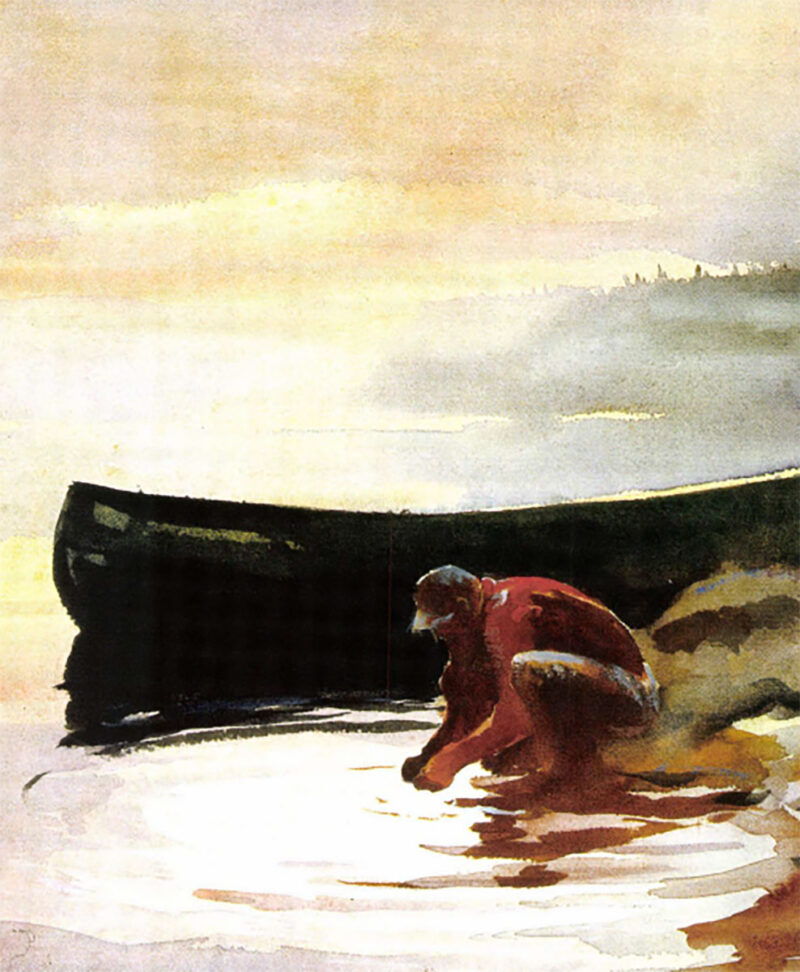 I paddled hard through a long stretch where it seemed as if around every bend was one vacated summer home after another. But the river would again find its way back into the woods, and once there under the cool of the cedars, the snow-covered hills rose up from the water from either shore. The rest of the afternoon I still-hunted the top of a ridge, finding only the old tracks of deer, trails leading down to the river, into a bowl-shaped hollow dark with cedar and white pine.
I paddled hard through a long stretch where it seemed as if around every bend was one vacated summer home after another. But the river would again find its way back into the woods, and once there under the cool of the cedars, the snow-covered hills rose up from the water from either shore. The rest of the afternoon I still-hunted the top of a ridge, finding only the old tracks of deer, trails leading down to the river, into a bowl-shaped hollow dark with cedar and white pine.
Tuna fish and boiled potatoes for dinner, and a restless night in the cold, wakened regularly by thumps on the canoe from snow falling off the branches above.
Day 3:
The deer you see while float-hunting are almost always bedded down. And sometimes they are sleeping, which tome is one of the most unnatural things to behold in the world. I mean, hunters just aren’t supposed to see things like that.
Stalking along the river, I once crept upon a deer kicking and twitching in its dreams like a dog. This morning, the one I find is cloaked in hoarfrost. Still as stone. Even as I sit here writing it, looking at what’s left of her sprawled in the canoe at my feet, it seems impossible, as if the past couple days have culminated in a dream.
When I woke this morning, I had been in fact dreaming of the past couple days. Dreaming of the real. Reliving the hours and the postcard visions of a world covered in snow. I never understood that feeling of being outside oneself until this morning.
Three days within earshot of a river and all of a sudden to hear it, you must listen, as if it were the pulse of your own heart or the sound of blood coursing through your veins. All of a sudden, what has come for me is a feeling of belonging to this world, an idea most every hunter entertains; a sense that I could make it out here if I wanted … if everything else went bad and I needed to.
The doe had dug out a place for herself in the fork of a fallen, snow-covered tree. I first thought her a stump. But then the image took shape. A deer! Drifting past, I anchored the canoe downriver and stalked back against the current.
I watched her dozing for a moment, waiting for the wind to carry my scent toward her. She didn’t leap to her feet, but instead rose like a tired old cow. The arrow skimmed over the snowbank between us, and when it passed through her chest a tiny cloud of white air puffed from the hole.
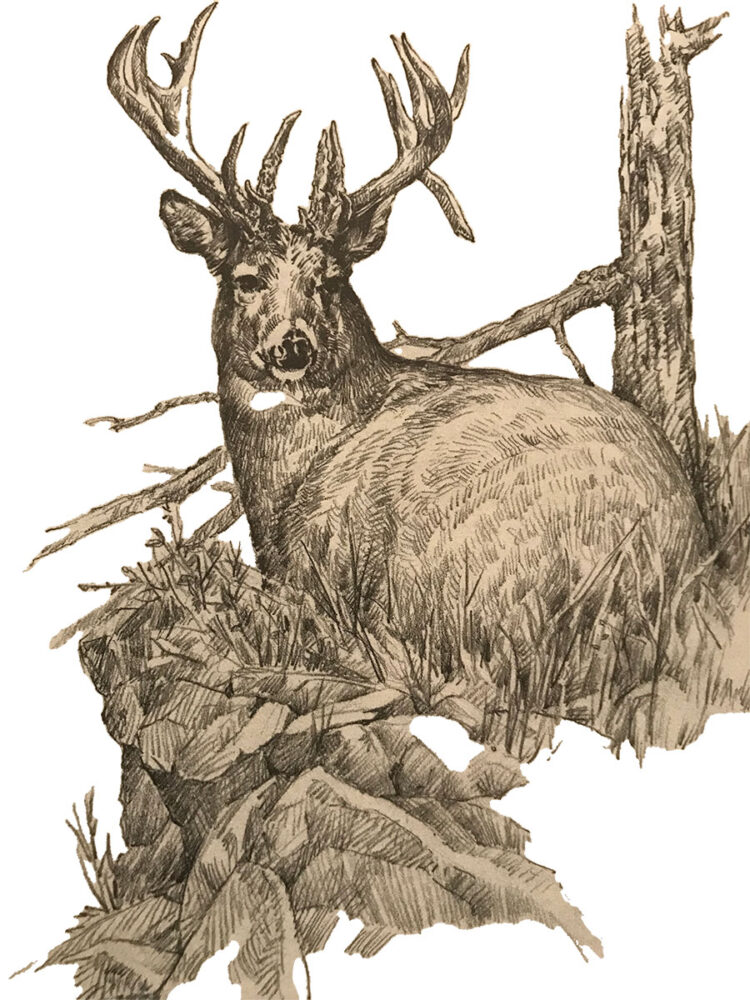 And with that, the spell was broken. I found her fallen in the cattails along an oxbow frozen over. She dragged easily back over the snow. And now as I remember it to paper, I feel an urgency to be gone from here, a sudden revelation that I am not the savage this story suggests or that I like to pretend. I think of my wife waiting at the railroad bridge downriver and how good it will be to see her.
And with that, the spell was broken. I found her fallen in the cattails along an oxbow frozen over. She dragged easily back over the snow. And now as I remember it to paper, I feel an urgency to be gone from here, a sudden revelation that I am not the savage this story suggests or that I like to pretend. I think of my wife waiting at the railroad bridge downriver and how good it will be to see her.
Three days, though it feels as if I’ve been away forever.
I paddle hard for home.
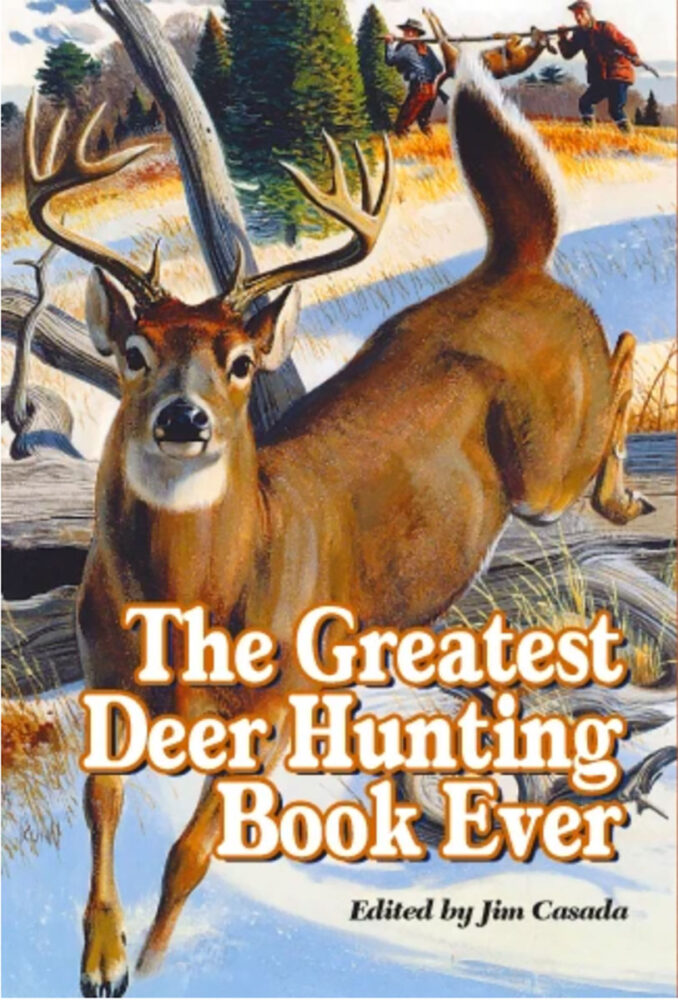 The Greatest Deer Hunting Book Ever provides what is in effect a portable hunt camp, replete with stirring sagas of whitetail delight. In these pages, the deer season is always open and the sport’s joys endlessly unfold. Buy Now
The Greatest Deer Hunting Book Ever provides what is in effect a portable hunt camp, replete with stirring sagas of whitetail delight. In these pages, the deer season is always open and the sport’s joys endlessly unfold. Buy Now

